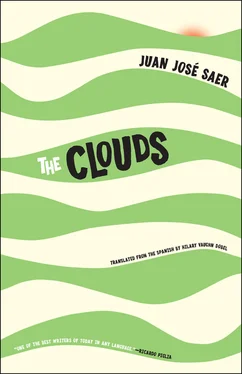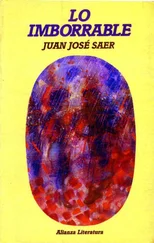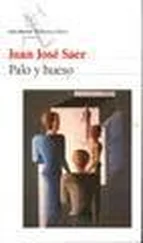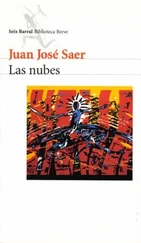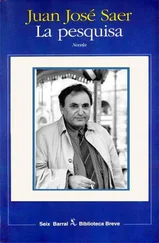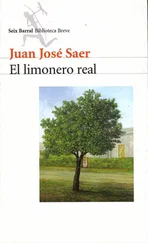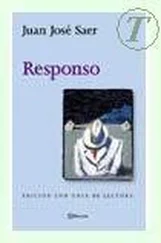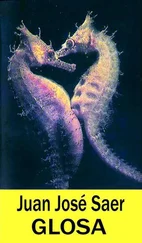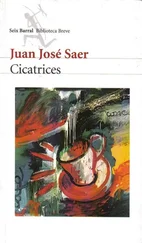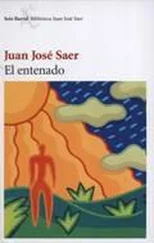We hurried out into the gray morning and crossed the cold, rainy courtyard (all the while, I was still adjusting my clothes), to receive the man who, I had no doubt, must be the peremptory associate from Córdoba, head of the band of strong and loquacious riders who had offended Osuna on the plains by offering him a pair of silver coins. I was determined to maintain a professional dialogue with the visitor, terse and stern, to punish him harshly for the breaches of conduct committed against two people whom I held in high regard, so before entering the library I carefully adopted an attitude which precluded all courtesy and familiarity — but on seeing me come in, the visitor spoiled my plans with a cordial, even enthusiastic greeting. Rushing to receive me, he briefly extended his hand, shaking mine energetically, and, after asking me if I truly was Dr. Real, told me that for months, ever since he’d begun correspondence with Casa de Salud in fact, he’d been eager to meet me and Dr. Weiss, who’d come with such admirable references. He was a tall, heavyset man who, but for a slight overhang of belly, had the build of a true athlete. Despite the encroaching fat, he still gave the immediate impression of physical strength, really an intangible life force, which was almost excessive. He must have been about thirty-five, so were it not for a few gray hairs that just whitened his clean, tousled brown hair about the whiskers and behind the ears, he would have been the very picture of a man in his prime. But there was something unstable in his manner of speech as well as his physical exuberance, and no matter how elegantly he wore his expensive clothing — a pearl-gray cape, the flounces of his shirt emerging in an impeccable white froth from a dark jacket, long trousers of light brown English worsted that disappeared into the legs of tall and lustrous boots, a slightly darker brown and of European make, whose aspect (no less immaculate than the rest) drew my attention and made me wonder how the devil he had managed to keep the leather free of mud, even near the soles — his whole person betrayed a sort of self-forgetting, as if the instant of dressing and preening so carefully before he came to call on us had elapsed into a past so distant and in a world so different from the one we were in now that it must lie dark and forgotten for all time, that the reality shared among all beings and things dated back no more than fifteen or twenty minutes. Our visitor, who seemed to feel a flamboyant regard for me, treated Señor Parra, who was barely able to hide his indignation, with deliberate condescension and spoke only to me; not only did he do everything possible to ignore Señor Parra, but he even seemed to calculate his every movement in order to keep his back to him at all times. As for his conversation, I must relate that the visitor began with a string of praises to my person disproportionate to the scope of my reputation, which was eclipsed, and justifiably, by that of Dr. Weiss, but then, and almost without pause, it became a professional (and even philosophical) examination; questions piled vexingly one atop the other, leaving me no time to answer — questions which our visitor, who interrogated me with shameless persistence, seemed to lose all interest in even as he asked them. This tense arrangement lasted some minutes, and even if I had not spotted the saliva bubbling at the corner of his mouth and the sudden fixity of his gaze, then the breakneck conversation, jumping from one subject to another with hardly any logical continuity, and that sense of enthusiastic but situationally-inappropriate energy that emanated from his person, led me to see that I was not meeting with a colleague — rather, this was the Córdoban patient we had been expecting, which his accent confirmed. From his bearing, which indicated symptoms of mania, I was addressing none other than Señor Troncoso, whose family, one of the richest in Córdoba, had sent him to be admitted at Las Tres Acacias. A typical behavior in that type of patient is precisely that air of superiority assumed in the presence of their doctors, and the tactic of coming to see me without notice explicitly to ascertain my cleverness or even, if possible, my total ineptitude — a fairly standard mode of presentation. In his face there had also been an attempt, skillful enough on his part, to conceal his madness, like a drunkard who, to avoid detection by others, tries to adopt the poses he believes most natural, never realizing it is those very attempts that betray his drunkenness. Señor Parra, unused to this manner of madness, looked more and more annoyed by what he believed was an extreme case of ill breeding, so I cast him a collusive glance, signaling him to calm down and, approaching our visitor, told him firmly to be quiet and invited him to sit. Though he obeyed, I saw from his excitement that it would not be so easy for me to pacify him. (Maniacal fits are characterized by a continuous excitation that builds to a crest and tolerates no interruption, not even sleep, and one of the symptoms that appears most often is, in fact, insomnia. In the throes of an attack, a patient can go several sleepless days without loss of strength, appetite, vitality. When it passes, the fit gives way to long periods of melancholy; during the attack, however, the steady increase of excitation can culminate in quite a frenzy.)
Although he remained seated for several minutes, Troncoso lost neither his verbosity nor his good humor, and, though he had no alternative but to listen to me, rather than answering my questions regarding the trip from Córdoba, their arrival, the escort accompanying him, the meeting with Osuna, and other things of that nature — questions which, unlike his, required precise responses that he did not seem disposed to provide — he chose to laugh at me like a child and, I must confess, as commonly occurs with certain rather talkative madmen, merely repeated, with a friendly and comical air, the last words of the last thing I said, or, making even Señor Parra laugh, proffered, as his sole response, words that had no logical relation to the last word of my sentence, but that rhymed with it. Such behavior, which might seem ridiculous to one who hears it described without ever having had occasion to observe it directly, manifested quite calmly, and Troncoso set forth precise sentences and rhymes. An unsuspecting person who entered the library in that moment might have believed that, before Señor Parra’s astonished gaze, Troncoso and I were playing a witty, pleasant, and otherworldly parlor game. After a time, Troncoso stopped and, as if he had grown bored of that very game (though not for the world did he lose the air of one passing a most diverting morning), he searched the room for some new distraction, returning his attention to the bust of Voltaire, and, with two vigorous strides, planted himself a meter from it and began to spout mockery in made-up French, which was largely composed of Castilian words spoken with a French accent, from which, now and again, there shone some musié Voltérr . For some mysterious reason, each time he spoke he would throw back his head abruptly, and with a haughty, contemptuous expression, he would toss his abundant mane, wavy and clean. Weary of that overlong performance, which had Señor Parra vacillating between bewilderment and rage all the while, I demanded that Troncoso bring me to the people who’d accompanied him from Córdoba, a demand he seemed not to hear, but he shook his head with a resigned and condescending smirk, and made his way to the front door. He was obviously hoping I would follow him and was acting deliberately, with that disdain the mad sometimes show when submitting to external reason without all the arm-twisting, feigning as if they were obeying the order more by coincidence than by the voluntary change brought about by reason. Present and vivid among all my memories thirty years later, Troncoso carries on as the very picture of the autonomy of madness — that to avoid apparent servitude to causes still unknown to us should be less caustic than the rather unjustified certainties of good health. As I wanted to see his escort, Troncoso took me to the street, and there they all were, seven or eight Córdoban horsemen mounted in the muddy street and squeezed beneath a couple of long military cloaks held over their heads to protect them from the rain. Their dark eyes gleamed in the half-light, a little denser than the gray air on that rainy morning, which thickened the capes’ shadow about their faces. One of the men held the reins of the only riderless horse, a tall, blue roan, restless and energetic, and just as mysterious with regard to its general being and its deeper motivations as the man who had ridden it from Córdoba, and who had now pocketed his book in his pearl-gray coat and was preparing to mount again, taking not the slightest precaution to save the page he had marked with his index finger the whole length of our interview, but taking infinite pains not to stain his overly shiny boots with mud. Even so, I marveled at the agility, the ease, even the grace of that stout frame, in which I had noticed his incipient obesity and the white hairs that started to gray his well-groomed hair, as he leapt on tiptoe, so as not to dirty his boots, over the ground where the mud was runnier and stickier, and his neat jump was almost balletic as he grabbed the reins held out to him by a member of the escort and set his right foot in the stirrup, steadying himself on it to propel his leg cleanly over the back of the horse, which recognized its rider (perhaps from the weight, smell, voice, and style, or even the madness — or who knows what other distinctive detail) and received him by bobbing its head twice, as if in agreement, before growing motionless again, preparing perhaps to receive the order to break into a gallop. An obvious hostility emanated from Troncoso’s escort toward me, and its members did not even try to hide it, unlike Troncoso himself, who had transferred that hostility to Señor Parra — the aforementioned having nothing to do with the matter — reserving for me an exaggerated regard in which irony and jocular self-assurance bordered on scorn. Of those men who had to protect him from so many external dangers (mainly, from those provoked by his own behavior), escorting him across the desert and into the hands of science to look after his health and try to return him to reason, Troncoso had formed a band of underlings, almost henchmen, who looked more like outlaws than caretakers; he clearly fascinated them, perhaps with that singular, radiating physical force that they were unable to understand, perhaps because the unruly excess had yet to present the opportunity. His obvious prowess enthralled them: tireless activity, physical strength, witty camaraderie, bravery, and, most importantly, the constant drive to renew that activity in a thousand different directions, many of which were contradictory and even mutually exclusive, based purely on his sudden and unpredictable changes of mood. Those simple men saw them as the features of a grandiose and magnetic originality, when really, in the eyes of medicine, they were banal signs, observed in nigh-constant repetition in a thousand different patients, foreshadowing collapse.
Читать дальше
